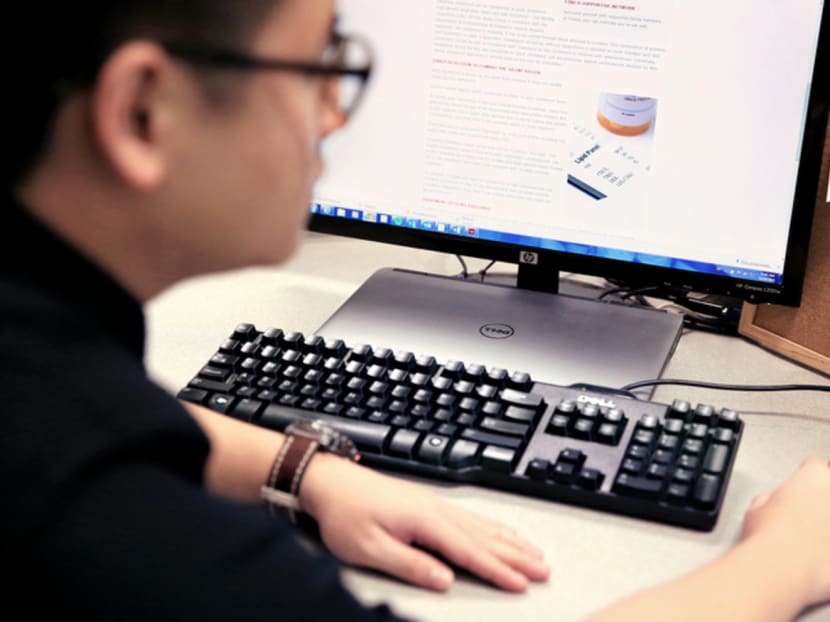Internet-surfing separation not easy decision, healthcare delivery affected in some areas: Health Minister
SINGAPORE — Internet-surfing separation is not a decision to be taken lightly, and many healthcare systems in other countries have found it difficult to set it in motion for practical and operational reasons, Minister for Health Gan Kim Yong reiterated in Parliament on Monday (Aug 6).
SINGAPORE — Internet-surfing separation is not a decision to be taken lightly, and many healthcare systems in other countries have found it difficult to set it in motion for practical and operational reasons, Minister for Health Gan Kim Yong reiterated in Parliament on Monday (Aug 6).
Since Internet-surfing separation — cutting Internet access from work computers — took effect at Singapore's three healthcare clusters last month in the aftermath of the SingHealth cyber attack, services in certain areas have been affected, said Mr Gan in response to questions from Members of Parliament (MPs) on the matter.
The affected areas include the reading of diagnostic reports from laboratories, video consultations, and the assessment of suspected stroke patients at emergency departments. Waiting times for consultations may also be stretched out as doctors may need to access references on the Internet via a separate computer, said Mr Gan in his ministerial statement.
Other issues such as referrals to private-sector partners, as well as submitting and retrieving results from screening systems, remain unresolved. While these do not compromise patient care and safety, they affect the healthcare system's efficiency, said Mr Gan.
"As a result of the security measures, some patients may experience a longer wait for consultations and (in receiving) their test results, as well as delays in checking their Medisave accounts or making their claims," the minister added.
To mitigate the challenges and allow healthcare institutions to continue functioning safely, engineers worked overnight and through the weekend — when Internet separation was in effect — to put in place temporary work-around solutions. They continue to be on the ground to fix problems.
On July 20, the authorities announced that hackers had broken into SingHealth's IT systems between June 27 and July 4. They stole the non-medical personal particulars of 1.5 million patients, and about 160,000 — including Prime Minister Lee Hsien Loong and several government ministers — also had their outpatient medication data stolen.
SingHealth put in place temporary Internet-surfing separation on July 19, with the National Healthcare Group and the National University Health System following suit four days later.
INTERNET SEPARATION MAY BE PERMANENT
Describing Internet access as an "integral" part of daily operations for many healthcare institutions here, Mr Gan said healthcare professionals rely on it to access other systems to deliver some healthcare services, such as receiving and reading laboratory reports, making referrals to private-sector partners, video consultations and tele-rehabilitation, as well as systems for payments and claims.
Before the cyber attack, the Integrated Health Information Systems (IHIS) — the technology agency that runs the IT systems of public healthcare institutions — had been working with the healthcare clusters to study and assess the feasibility of Internet-surfing separation, and how to mitigate its impact on patients and healthcare professionals, stressed Mr Gan.
He noted that overseas healthcare systems, such as Hong Kong's Hospital Authority and United States' integrated managed care consortium Kaiser Permanente, have not adopted complete Internet-surfing separation.
In Singapore, the Government is studying and piloting a "virtual browser" solution that allows users safer access to the Internet via a set of quarantined servers, which cut the number of potential attack points. The virtual browsers will be complemented by advanced threat protection measures, which were initiated before the SingHealth breach and are expected to be completed by the end of August.
Mr Gan said the Government will study the impact of the Internet-surfing separation to determine if it can be kept as a permanent measure, at least for some parts of the healthcare system. But if it stays, this will entail devising longer-term mitigating solutions to surmount operational issues, he noted.
On Monday, Workers' Party Non-Constituency MP Daniel Goh asked Mr Gan which parts of the healthcare system will likely face permanent Internet-surfing separation.
Responding, Mr Gan said it was still early and he did not wish to "pre-empt" any decision, as the measure was under review.
There are parts of the healthcare system where care is closely linked to Internet access, such as in emergency departments, and these places are more likely to be given certain rights to Internet access, said Mr Gan.
He added that the authorities will draw lessons from its experience of Internet surfing separation to make an "informed assessment of which are the parts that should continue with (this) and which are the parts we should, maybe, revert to alternative solutions."









